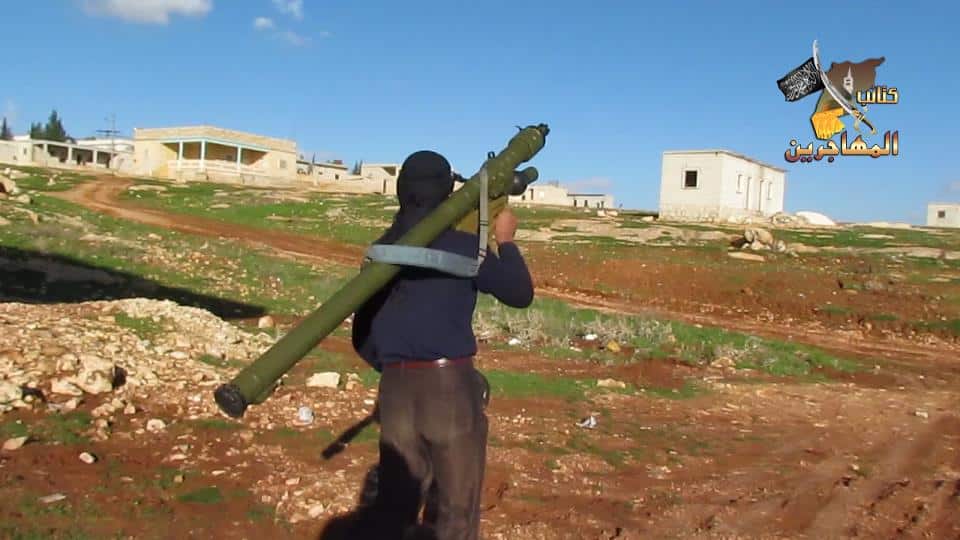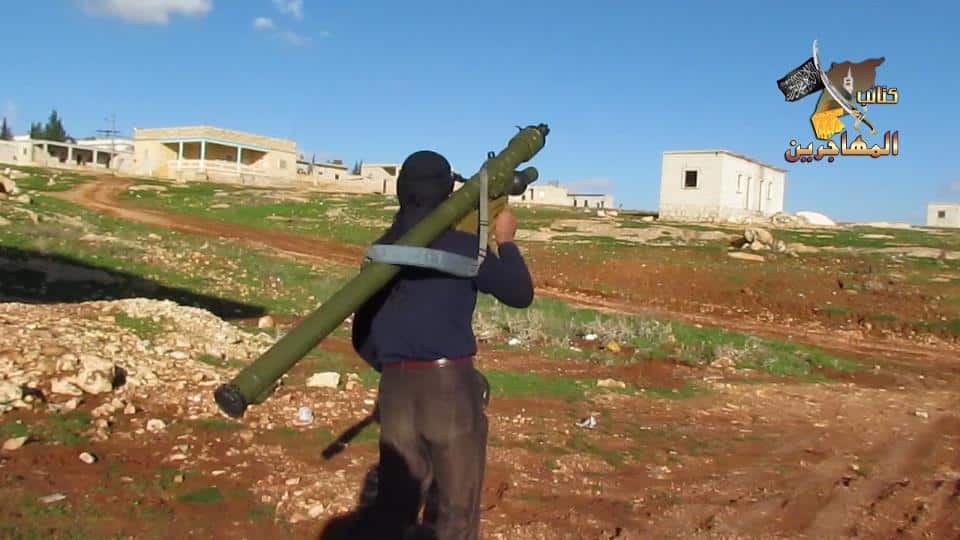
The ceasefire in Syria held for some five weeks but is now about to end. During the ceasefire Russia reduced its forces in Syria and the Syrian Arab Army made significant progress against the Islamic State. But the opposition and their sponsors abused the ceasefire to rearm. They prepared and executed new attacks against the Syrian government and Syrian civilians.
The sponsors of the opposition, Turkey, Saudi Arabia and the US delivered new arms and munition to the “moderate” opposition. It is known that up to half of all supplies the “moderates” receive is inevitably delivered to al-Qaeda in Syria. The sponsors also broke a long-standing taboo and introduced portable anti-air missiles (MANPADs) onto the battle field. Several fighters of the US and Turkey supported Al Hamza brigade posted pictures showing off their new toys. The US claims that these fighters are supposed to only fight the Islamic State. But the Islamic State has no aircraft and these weapons are clearly to be used against the Syrian government and its supporters.
Earlier this week, Ahrar al-Sham, a Salafist group near to al-Qaeda, downed (video) a Syrian Su-22 ground-attack plane with a MANPAD near the city of Tal Eis, south of Aleppo city. The pilot, Lt. Col Musad Zayed Hirani, was taken prisoner by al-Qaeda in Syria (Jabhat al Nusra). This incident shows that MANPADs immediately proliferate on the battle field and beyond and may soon be used against civilian planes in the Middle East and around the world.
Tuesday, “moderate” rebels launched improvised artillery attacks on the mostly Kurdish Sheikh Maqsoud neighborhood in the government held parts of Aleppo city. At least 17 civilians were killed and more than 50 were wounded.
The “moderate” opposition in Syria which is receiving official US support is not willing to distance itself from al-Qaeda:
“We absolutely do not agree with Jabhat Al Nusra. We do not want Jabhat Al Nusra’s ideology to be in Syria now or in the future. But we need fighters who will fight with us against the regime,” said Zakaria Malahefji, a political officer with Fastaqim Kama Umrit, a coalition of rebel groups in the city of Aleppo.
…
“Jabhat Al Nusra are our brothers,” said Hajj Bakri, a rebel leader in Hama. “We have no problem with them.”
…
“Our relationship with Jabhat Al Nusra is good and there is a collaboration with Jabhat Al Nusra in military operations and security responsibilities,” said Abu Zeid, a commander with the hardline Salafi militia Ahrar Al Sham in north-western Syria’s Akrad Mountains. As one of the most powerful rebel factions in the war, Ahrar Al Sham is Al Nusra’s most important single ally.
Al-Qaeda in Syria was, like the Islamic State, not part of the ceasefire agreement. The US officially regards al-Qaeda in Syria as a terrorist entity and enemy. Al-Qaeda has zero interest in any negotiated peace and is therefore doing its best to sabotage it. During the last weeks it succeeded in convincing the “moderates” to join it in renewed fighting:
Faced by an internationally-mediated cessation of hostilities that threatened to irreversibly erode its influence, Nusra had begun in mid-March a process of talks inside Syria aimed at convincing opposition groups to resume their fight against the regime. As such, the last 48 hours of opposition advances south of Aleppo represent a victory for al-Qaeda in its efforts to undermine the political process and to put back in place conditions more amenable to its long game strategy for Syria.
On Saturday several US supported “moderate” rebel groups joined al-Qaeda in an attack on the government held city of Tal Eis in the south Aleppo countryside:
Syria’s partial cease-fire appeared to be unraveling Saturday as fierce fighting between government forces and opposition fighters, including members of the al-Qaida affiliated Nusra Front, erupted outside the country’s second largest city of Aleppo and other parts in the country’s north.
At least 25 pro-government and 16 opposition fighters died in the clashes south of Aleppo, where the Nusra Front and rebel militias captured a village overlooking a major highway, a Britain-based monitoring group told The Associated Press.
…
A number of groups — including some nominally party to the truce agreement — acknowledged on social media that they were battling government forces.The Islam Army, whose political coordinator heads the opposition delegation during halting peace talks in Geneva, announced it had killed 20 government soldiers in fighting outside Damascus Friday. It announced Saturday it was also fighting in the south Aleppo countryside, though the group is not known to have a major presence there.
It is obvious now that the “moderate” rebels have broken the ceasefire and are openly in full cooperation with al-Qaeda.
Unless the opposition sponsors manage to immediately reign in their proxies, all out war in Syria will soon be back. The Syrian government and its allies are now mobilizing more forces to regain the lost areas in the southern Aleppo country side. For the first time ‘advisors’ of the regular Iranian army (not the Revolutionary Guard) will take part in the fighting. The Russian air force is likely to reintroduce some parts of its Syria contingent that had been withdrawn.
The Russian side had agreed with the US to stop the fighting and to take the political walk through negotiations in Geneva. This decision was made against the wishes of the Syrian government and its Iranian allies. They would have preferred to at least free Aleppo city of all opposition forces before any talks.
But even if the ceasefire now breaks down the Russian move was valuable. It showed that it is able to hold its allies to a ceasefire when promised. It also demonstrated that the US side is either not able, or not willing to implement and keep a ceasefire but abuses such period to rearm its proxies for new fighting.
The coming Syrian government campaign, with full support of its allies, will likely be at a more intense level than its last offensive. That attack had the rebels on the run, defeated and in parts fleeing the battle field when it was stopped by the ceasefire agreement. The coming attack will be more intense and will not stop until the opposition has taken very significant damage.
Tuesday, the Syrian army issued a statement asking all civilians to leave the areas held by the opposition within the next 48 hours. It promises that the new campaign will “give a lesson” to al-Qaeda and its followers.
Reprinted with permission from MoonofAlabama.org.


